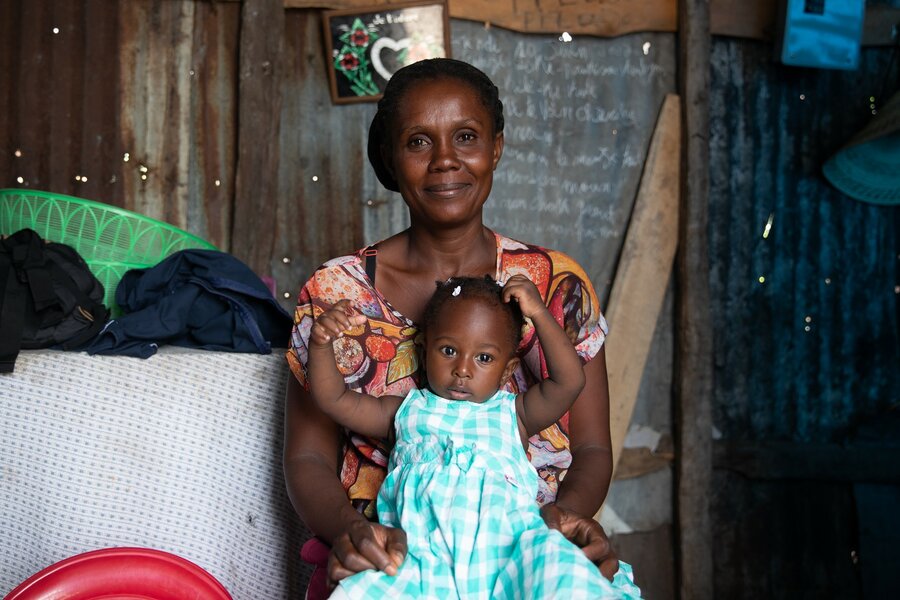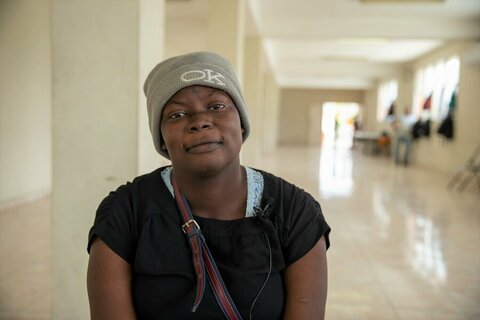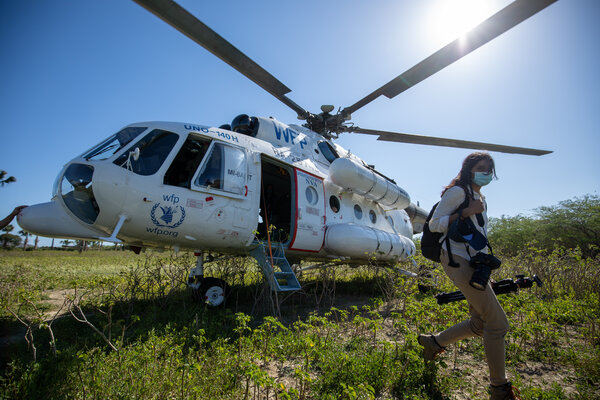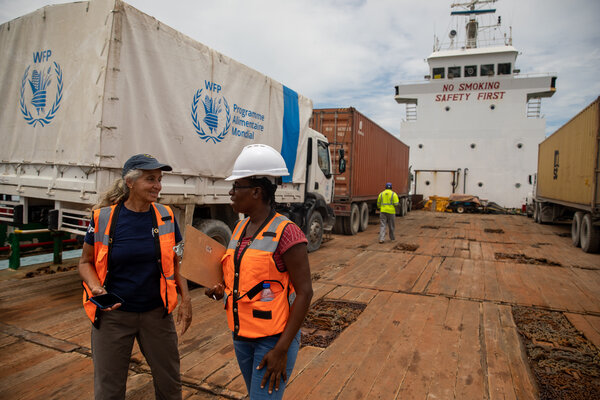Haiti: Violence fuels hunger amid political instability

“I knew how to do business with money, I knew how to make madan sara,” says Adeline, a young mother of four and participant in a World Food Programme (WFP) resilience project near Les Cayes in the south of Haiti.
Madan sara is a Haitian Creole for doing business in the capital, Port-au-Prince. Adeline said that after the earthquake that hit the country in August last year, she’s got back on her feet using cash assistance from WFP.
However, amid political instability and rising gang violence, many Haitians are losing their livelihoods.
Haiti: ‘I spent all day hiding under my bed. They spent all day shooting’

“I bought bananas here [in the South] to sell in Port-au-Prince but after two trips”, she says, “I couldn’t go anymore. Because of the insecurity, I lost the business, I lost the money, and now I have to stay here without doing anything.”
With almost half the population of Haiti already facing hunger, rising inflation, high costs of food and fuel and the deteriorating security situation are pushing Haitians over the edge.
Hunger levels are set to rise as the war in Ukraine continues to impact global supplies and surging gang violence restricts movements of goods in the country. The island nation is particularly vulnerable to shocks in the global food and fuel markets as it imports 70 percent of its cereals. Haiti is already seeing a staggering inflation of 26 percent.
“The products cost much more now because the same money from before can't buy the same products anymore,” says Adeline. If there is food, we eat twice a day, if there is not, we eat only once. For the moment, we only eat once.”

She adds: “The situation has become harder for mothers and fathers. Without getting help, we wouldn't know what to do,” says Adeline. It is not just Haitian families that are affected by the spike in insecurity. The highly volatile situation is affecting humanitarian operations too and putting critical assistance at risk that many vulnerable Haitians rely on.
The complete blockage of the road leading to the impoverished southern peninsula for a year has cut off at least 3.5 million people from the capital — restricting access to markets, basic services and essential humanitarian assistance. Recent clashes have also compromised access to the north. WFP provides a critical lifeline through sea and air services from the capital to the north and the earthquake-affected south of the country.

“We are seeing hunger rise significantly in the capital and south of the country with Port-au-Prince being the hardest hit. It’s not just the ones affected by violence directly that are suffering, a lot of people are used to selling their produce or do trade in the capital, they have all lost their business because they can’t get there safely,” WFP Haiti Country Director Jean-Martin Bauer explains.
As criminal groups block the roads leading to Port-au-Prince, WFP offers services to the humanitarian community to ensure that operations can continue. While WFP’s ship, the Linda D, safely transports humanitarian trucks and cargo, the helicopter of the WFP-led United Nations Humanitarian Air Service (UNHAS) remains the only safe option for the humanitarian passengers to move in and out of the capital and across the country.
“The gangs are now controlling all main roads in and out of the capital. The only safe option for humanitarians to move is by helicopter, and we’re lacking funding to ensure that we can continue providing that service. Ultimately, this puts humanitarian operations across the country at risk,” says Jean-Martin Bauer.


The past year has seen a dramatic increase in requests for UNHAS services after the 2021 earthquake and losing access to the capital by road, but WFP only has one available helicopter for air transport in the country, after having to forgo its second plane earlier this year due to funding constraints.
The UNHAS service is essential in order to continue humanitarian operations across the country. WFP urgently requires US$3.5 million to support the humanitarian community through aviation services in response to humanitarian needs in the country. Without adequate funding, the operation faces imminent closure by the end of July 2022.
In 2022, our partners BHA, Canada, ECHO, France, Germany, Japan, Switzerland and UNCERF are supporting WFP in providing maritime and air services for the humanitarian community.
